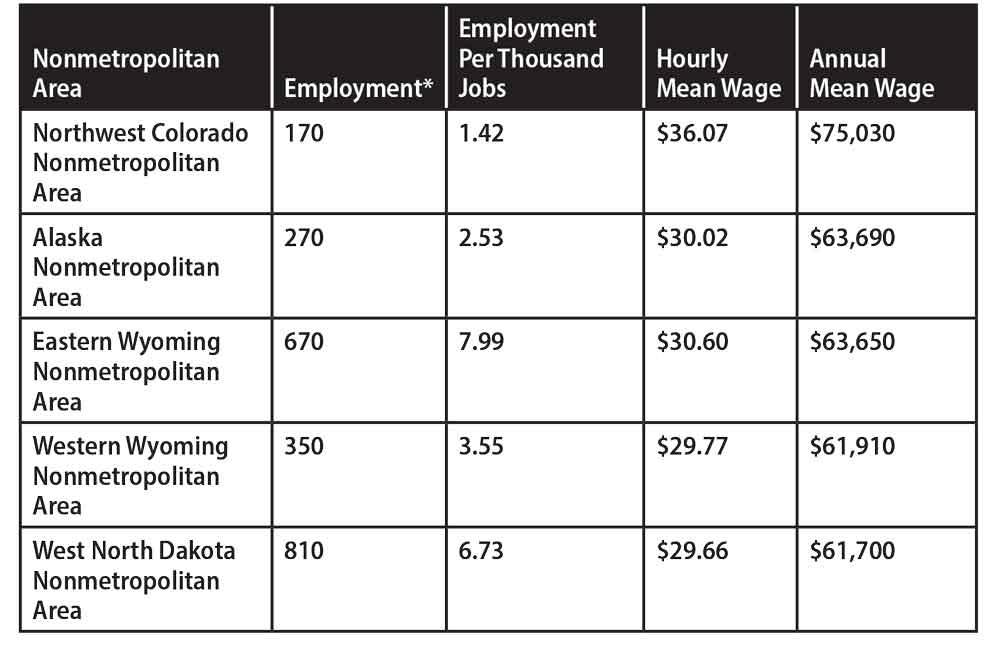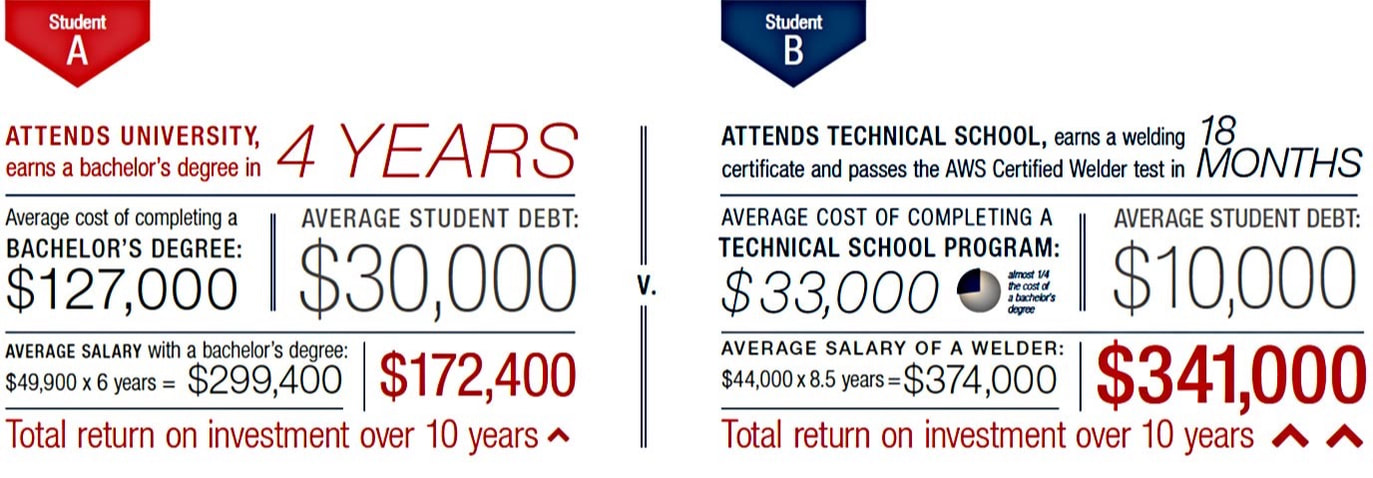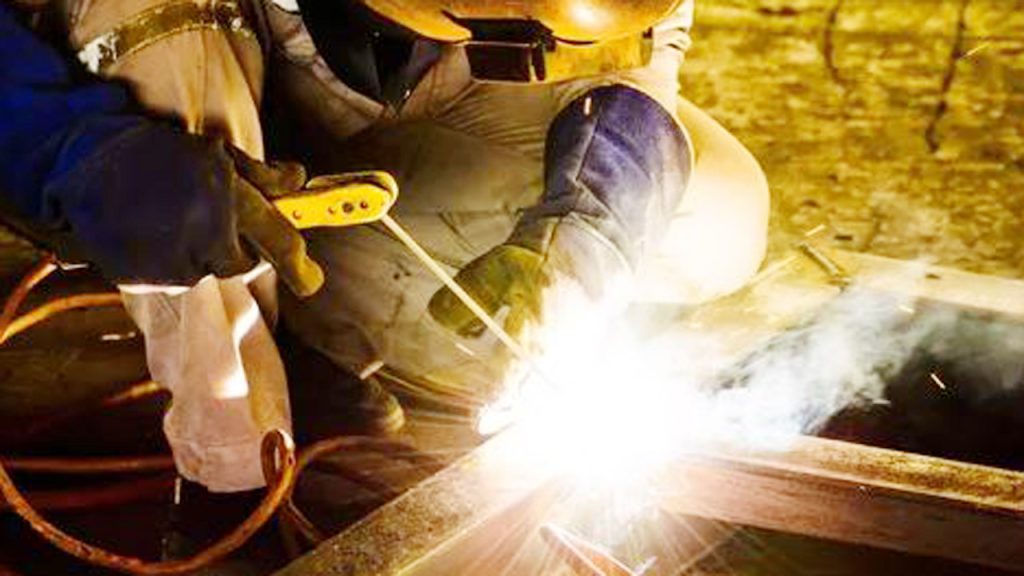Welders earn their pay through various methods. Their compensation depends on several factors, including skill and location.
Welding is a crucial trade, essential in many industries. Welders build and repair structures, ensuring safety and durability. Payment methods for welders can vary widely. Some earn hourly wages, while others receive salaries. Additionally, many welders take on contract work, which can impact their earnings.
Experience and certification also play significant roles in determining pay. Understanding how welders get paid helps you appreciate their work and the factors influencing their income. This blog post will explore the different ways welders earn money and what affects their pay rates. Stick around to learn more about this important profession and its compensation.
Introduction To Welding Careers
Welding careers offer many opportunities in various industries. Welders play a crucial role in construction, manufacturing, and infrastructure. Understanding how welders get paid involves looking at the industry and their importance.
Welding Industry Overview
The welding industry is vast and covers many sectors. These include construction, automotive, and shipbuilding. Welders use heat to join metals, creating strong bonds. They work on projects ranging from small repairs to large structures.
Welding jobs can be found worldwide. Many countries need skilled welders to support their industries. The demand for welders is strong and continues to grow. This growth offers stable employment opportunities.
Importance Of Welders
Welders are essential in building and maintaining infrastructure. They ensure that buildings, bridges, and vehicles are safe. Without welders, many projects would come to a halt.
Welders also contribute to innovation. They help create new products and technologies. Their skills are crucial in advancing many fields. Welding is not just about joining metals. It is about ensuring the safety and progress of society.
Types Of Welding Jobs
Welding is a skill with many job opportunities. Each welding job has its own challenges and rewards. Understanding the different types of welding jobs can help welders choose their career path. Here are some common types of welding jobs.
Industrial Welders
Industrial welders work in factories and manufacturing plants. They create and repair equipment. These welders often work with heavy machinery. Safety is very important. Industrial welders must follow strict safety rules. They usually work indoors in controlled environments.
Construction Welders
Construction welders help build new structures. They work on bridges, buildings, and roads. These welders need to be skilled in different welding techniques. Construction welders often work outdoors. Weather conditions can affect their work. They must be ready for any situation.
Pipeline Welders
Pipeline welders join pipes that carry oil, gas, and water. They work in different locations, including remote areas. Pipeline welders need to travel often. They must ensure the pipes are secure and leak-proof. This job requires precision and attention to detail.
Underwater Welders
Underwater welders perform welding tasks below the water’s surface. They work on ships, oil rigs, and underwater structures. This job is dangerous and requires special training. Underwater welders must be certified divers. They need to handle the challenges of working underwater.
Factors Affecting Welder Salaries
When considering a career in welding, one of the most important questions is: how much do welders get paid? The answer isn’t straightforward because welder salaries depend on various factors. In this section, we’ll delve into the factors affecting welder salaries to give you a clearer picture.
Experience Level
Experience plays a significant role in determining a welder’s salary. Just like any other profession, the more experience you have, the higher your earning potential.
- Entry-level welders: These are individuals who are just starting their welding careers. They typically earn less than their more experienced counterparts. However, entry-level positions offer valuable opportunities to learn and grow.
- Mid-level welders: With a few years of experience under their belts, mid-level welders see a noticeable increase in their paychecks. They’ve honed their skills and often take on more complex welding tasks.
- Senior welders: These seasoned professionals can command top dollar. Their expertise allows them to handle the most challenging welding projects, making them highly sought after in the industry.
Location
Where you work also has a big impact on your salary. Welders in different parts of the country, or even the world, can experience varied pay scales.
| Region | Average Salary |
|---|---|
| Urban Areas | Higher due to higher demand and cost of living |
| Rural Areas | Lower, but cost of living is also less |
| International Locations | Varies widely based on the country and economic conditions |
For instance, welders in big cities like New York or Los Angeles tend to earn more than those in smaller towns. However, the cost of living in these cities is also higher. So, it’s a bit of a balancing act.
Industry Demand
The demand for welders in various industries can significantly influence their salaries. When the demand is high, wages usually go up.
- Construction: The construction industry often has a high demand for skilled welders. Projects like building bridges, skyscrapers, and highways require expert welding work.
- Manufacturing: Factories that produce cars, ships, and heavy machinery need welders to assemble and repair their products. This sector can offer steady employment and good pay.
- Oil and Gas: Welding jobs in the oil and gas industry are known for their high salaries. However, these jobs can be demanding and often require working in harsh environments.
So, if you’re eyeing a career in welding, it’s crucial to consider which industry you’re interested in. Each has its own set of opportunities and challenges.
In conclusion, several factors affect welder salaries, including experience level, location, and industry demand. By understanding these elements, you can better navigate your career path and maximize your earning potential as a welder. So, what are you waiting for? Start welding your way to a lucrative career!

Credit: www.thefabricator.com
Salary Expectations
Welding is a skilled trade that offers various earning potentials. The salary of a welder depends on experience, location, and industry. Entry-level welders earn less compared to their experienced counterparts. As welders gain experience, their earnings can increase significantly.
Entry-level Welders
Entry-level welders usually start with lower wages. Their earnings range from $30,000 to $40,000 annually. Beginners often work under supervision and handle simpler tasks. Their primary goal is to gain experience and improve skills. Certification can also play a big role in their initial salary.
Mid-level Welders
Mid-level welders have around three to five years of experience. Their annual salary ranges between $40,000 and $60,000. They handle more complex tasks and work more independently. Their increased responsibility and improved skills reflect in their pay. Many mid-level welders also hold advanced certifications, boosting their earnings.
Senior Welders
Senior welders are experts with over five years of experience. They can earn between $60,000 and $100,000 per year. These welders work on critical projects and often supervise others. Their expertise and leadership skills justify their higher salaries. Senior welders may also take up roles in training or quality control.
Hourly Vs. Salary Pay Structures
When it comes to how welders are compensated, the debate between hourly and salary pay structures is one that sparks much discussion. Both methods have their own set of advantages and drawbacks, and the choice between the two can significantly impact a welder’s job satisfaction and financial stability. So, let’s dive into the nitty-gritty details and see what works best for our hardworking welders.
Pros And Cons Of Hourly Pay
Hourly pay is quite common in the welding industry, and it’s easy to see why. Here’s a closer look at the pros and cons:
| Pros | Cons |
|---|---|
|
|
Pros And Cons Of Salary Pay
On the flip side, salary pay offers a different set of perks and pitfalls. Let’s break them down:
| Pros | Cons |
|---|---|
|
|
In the end, the choice between hourly and salary pay structures boils down to personal preference and lifestyle needs. Each welder must weigh the pros and cons to determine what suits them best. Whether it’s the flexibility of hourly pay or the stability of a salary, one thing’s for sure: welders deserve fair compensation for their skilled work.

Credit: www.fmamfg.org
Additional Compensation
While welders earn a decent base salary, they often receive extra compensation that can boost their overall income. This additional compensation includes overtime pay, bonuses, and benefits. Let’s dive deeper into each of these components to understand how they enhance a welder’s earnings.
Overtime Pay
Welders frequently work beyond the typical 40-hour workweek, and guess what? They get paid extra for it! Overtime pay is usually 1.5 times the regular hourly rate. Imagine working a 10-hour shift instead of 8 hours. The extra 2 hours are paid at a higher rate. This can add up quickly!
Here’s a simple example:
| Regular Hours | Overtime Hours | Hourly Rate | Overtime Rate |
|---|---|---|---|
| 40 | 5 | $20 | $30 |
In this scenario, if a welder works 45 hours in a week, the 5 extra hours will be paid at $30 per hour. That’s an additional $150 just for working a bit longer!
Bonuses
Who doesn’t love a bonus? Welders can receive bonuses for various reasons. Performance-based bonuses reward welders who meet or exceed productivity targets. Safety bonuses are given for maintaining accident-free work environments. Sometimes, companies even offer holiday bonuses!
Consider these types of bonuses:
- Performance Bonuses: Based on the quality and quantity of work.
- Safety Bonuses: For adhering to safety protocols and avoiding accidents.
- Holiday Bonuses: Extra pay during festive seasons.
These bonuses not only increase a welder’s income but also boost morale and encourage better performance. It’s a win-win!
Benefits
Beyond the paycheck, welders receive various benefits. These perks make the job more attractive and provide security. Common benefits include health insurance, retirement plans, and paid time off.
Here’s a closer look at some typical benefits:
- Health Insurance: Covers medical expenses for welders and their families.
- Retirement Plans: Helps welders save for the future.
- Paid Time Off: Includes vacation days, sick leave, and holidays.
These benefits provide a safety net, ensuring welders and their families are taken care of, both now and in the future. It’s like having a financial cushion to fall back on.
In conclusion, welders not only earn a base salary but also enjoy various forms of additional compensation. Overtime pay, bonuses, and benefits significantly enhance their overall earnings, making the welding profession both rewarding and secure.
Training And Certification
When it comes to welding, training and certification play a vital role. Not only do they ensure that welders are skilled and safe, but they also significantly impact how much welders get paid. Proper training and certification can open doors to higher-paying jobs and better opportunities. In this section, we will delve into the importance of certification and explore some of the most popular welding certifications available.
Importance Of Certification
Why is certification so important for welders? Think of it as a stamp of approval. Certification proves that a welder has the skills and knowledge to perform their job safely and effectively. Employers look for certified welders because they know these workers have met industry standards.
Certified welders often earn higher wages. They are in demand because their skills are verified. This can lead to more job opportunities and better job security. In short, certification is not just a piece of paper; it’s a key to a successful welding career.
Popular Welding Certifications
So, what are some of the certifications that can boost a welder’s career? Here are a few of the most recognized ones:
- Certified Welder (CW) – Offered by the American Welding Society (AWS), this certification tests a welder’s ability to perform specific welding tasks. It’s widely recognized and respected in the industry.
- Certified Welding Inspector (CWI) – Also provided by AWS, this certification is for those who want to inspect welds rather than perform them. CWIs ensure that welds meet safety and quality standards.
- Certified Welding Educator (CWE) – This certification is for those who wish to teach welding. It shows that an individual has the knowledge and skills to educate others in welding techniques and safety.
- Welding Procedure Specification (WPS) – This certification involves creating a document that describes how to produce a weld that meets industry standards. It’s essential for those involved in planning and supervising welding projects.
Each of these certifications requires passing exams and, in some cases, demonstrating practical skills. But the investment of time and effort can pay off in higher wages and more job opportunities. So, if you’re serious about a welding career, getting certified is a smart move.
Future Of Welding Careers
The future of welding careers looks bright with many exciting changes ahead. New technology and job market trends are shaping the way welders work. These changes can affect how welders get paid and how they find jobs.
Technological Advancements
Technological advancements are changing the welding industry. Automation and robotics are becoming more common. These tools can help welders work faster and safer. They can also handle repetitive tasks, reducing human error. This can lead to higher quality work and better pay for skilled welders.
New welding machines are also more efficient. They use less energy and materials, which can save money. Advanced welding techniques are in demand, too. Welders who learn these new skills can earn more. Keeping up with technology can make a big difference in a welder’s career.
Job Market Trends
The job market for welders is growing. Many industries need skilled welders, including construction, manufacturing, and aerospace. The demand for welders is expected to rise in the coming years. This can lead to more job opportunities and better pay.
Some regions have higher demand for welders than others. Areas with lots of construction projects may need more welders. Welders willing to relocate can find better job opportunities. Apprenticeships and training programs can help new welders enter the job market. Experienced welders can mentor newcomers, creating a strong workforce.
The future of welding careers is full of potential. By staying updated on technology and job trends, welders can find success and good pay. The welding industry offers many opportunities for those willing to learn and adapt.

Credit: www.earlbeck.com
Frequently Asked Questions
Do Welders Actually Make Good Money?
Yes, welders can make good money. Skilled welders often earn competitive wages. Specializations and certifications can increase pay significantly.
Can I Make $100k As A Welder?
Yes, you can make $100k as a welder. Specializing in high-demand fields, gaining certifications, and working overtime can help.
How Do You Make Money As A Welder?
Welders make money by working on construction projects, manufacturing, and repairs. They can also earn through freelance welding jobs.
What’s The Highest Paid Welding Job?
The highest-paid welding job is an industrial pipeline welder. They can earn up to $100,000 annually.
Conclusion
Understanding how welders get paid is crucial for aspiring professionals. Payment varies by experience, location, and industry. Hourly wages are common, but some earn salaries. Overtime and bonuses can boost income. Certification and skills impact pay rates. Researching and negotiating can help welders maximize earnings.
Knowing these factors helps welders plan their careers effectively. Stay informed and make wise choices for financial success in welding.

